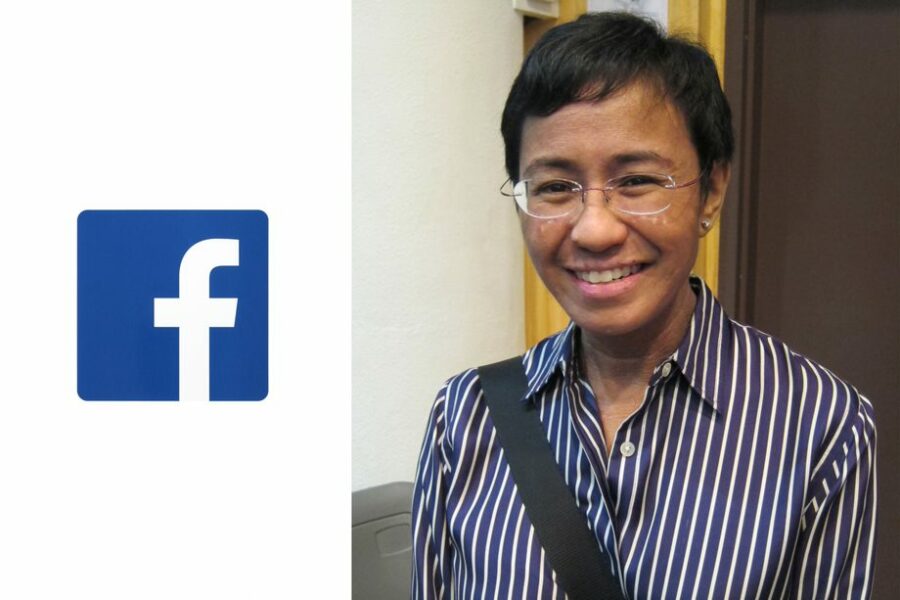Maria Ressa, the journalist who shared the Nobel Peace Prize this year with Russian journalist Dmitry Murtov, criticised Facebook for an algorithm that “actually favours lies laced with anger and hate that spreads faster than facts.”
Ressa, a former CNN journalist and the CEO of Rappler, an independent news outlet in Philippines, was awarded the Nobel Peace Prize for her “efforts to safeguard freedom of expression, which is a precondition for democracy and lasting peace.”
Speaking to Al Jazeera after she was awarded the Nobel Prize, Ressa lamented that the loss of the “gatekeeping powers” of news organisations to social media platforms has made facts debatable. “Because facts and lies are treated equally. When facts are debatable, then you don’t have facts, you don’t have truth and you can’t have trust. Without all of these things, you don’t have a shared reality, you can’t have democracy, and certainly can’t have any meaningful human engagement to deal with the existential problems we face – climate, the coronavirus.”
This comes in the wake of ex-Facebook Product Manager Frances Haugen turning whistle-blower and sharing information with the Wall Street Journal that the social media giant was “optimizing content that generated engagement,” turning a blind eye to the hate speech caused by its platforms.
Instead of containing offensive posts, Haugen said, Facebook made profits off of content that makes people angry, as it increases their on-site time. Such content ranges from ethnic violence against minority groups, such as the Rohingyas of Myanmar, to causing body-complexes among teenagers on Instagram. Haugen later appeared before the US Congress and put forward the need to regulate Facebook and its family of apps.
Reflecting similar sentiments as Haugen, Ressa had said in a 2019 Q&A, “[Facebook] threw news into the same algorithms that were designed to appeal to the worst of human nature, the kinds of things we’d sometimes even hide from ourselves. These algorithms were designed to keep you on-site for as long as possible.”
Ressa founded Rappler, in 2012, and gained traction on Facebook. However, Rappler also fell prey to organised attacks on the social media platform during the 2016 Philippine Presidential elections. In the 2019 Q&A published by CIGI, Ressa had described how under Philippine President Rodrigo Duterte’s regime, the social media campaigns and accounts “that were used to help Duterte win the presidency were then weaponized and used as the place where disinformation went viral.” Common people, journalists, news groups, and opposition politicians all came under attack, she noted.
Ressa added that she gathered a list of fake accounts on Facebook and approached the social media giant to take action. However, though the people she met with at the company were shocked, they “didn’t know what to do.”
Recommended
Recently, in a lengthy Facebook post, Zuckerberg passed the buck to lawmakers and said it was their responsibility to update social media regulations.
Ressa, however, had said in 2019 that she believes that “the only people who can fix this for us are the social media technology platforms.”
Ressa’s Nobel Peace Prize win comes at a time when journalists around the world who do not conform to the ideology of the ruling power in their respective countries, are routinely persecuted and declared anti-nationals.
According to a report by the Committee to Protect Journalists, at least 30 journalists were killed, globally, in 2020, with the highest retaliatory killings reported in countries like Mexico, Afghanistan, and Philippines.



